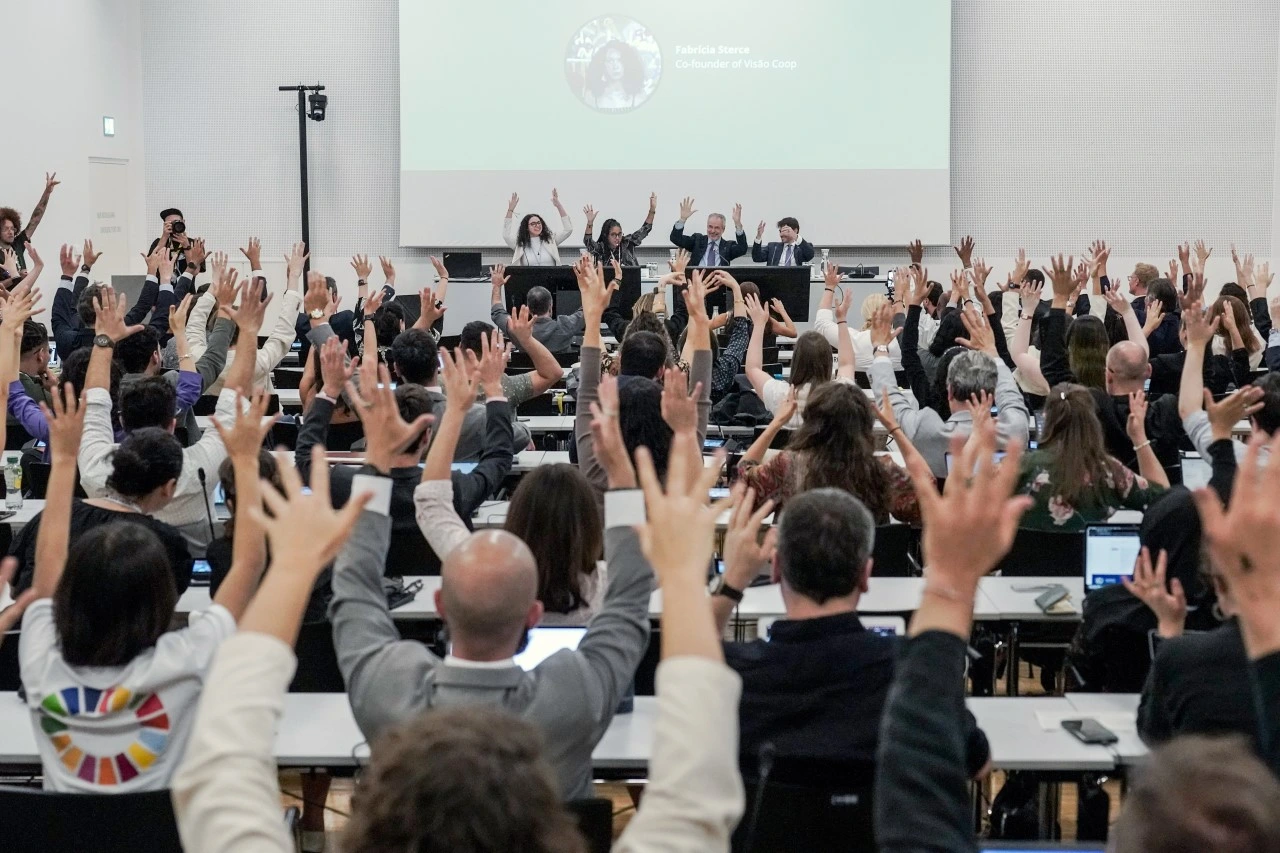The Global Climate Mutirão initiative gains strength at the UN conference in Germany
The initiative, unveiled in Bonn, aims to integrate local climate adaptation efforts into a global network, with Brasil's ambassador cites the success of community-led approaches

On Wednesday, June 18, the Global Climate mutirão (global collective effort) initiative was presented at the UNFCCC Subsidiary Bodies Conference in Bonn, Germany. This initiative emphasizes the crucial role of local communities in implementing climate solutions and ensuring a just transition. The proposal, championed by the COP30 Presidency, garnered substantial attention on the third day of the UNFCCC Subsidiary Bodies Conference in Bonn, Germany.
"The beauty of the mutirão lies in its decentralization," stated Ambassador André Corrêa do Lago, Brasil’s COP30 President. "The real strength stems from autonomous initiatives that emerge organically. That’s what makes this climate effort so powerful – the energy of people acting on their own, yet in sync with a greater purpose," he said.
The concept forms a cornerstone of the Brazilian leadership's strategy for translating climate commitments into decisive action at the required pace to mitigate the climate crisis. It operates through a structure that integrates local, autonomous, and collaborative endeavors into a cohesive global movement.
"The creativity needed to develop solutions that don’t yet exist is precisely what led us to share the concept of the Mutirão with the world," explained Túlio Andrade, COP30’s Head of Mobilization. "We have much to learn from those already implementing concrete actions, both in urban areas and in Indigenous territories. This knowledge exchange is fundamental to effectively addressing climate challenges," he affirmed.
It’s not merely about gathering people; it’s about strengthening multilateralism, connecting negotiations to the realities of populations, and accelerating the implementation of the Paris Agreement." Andrade contended that the initiative could foster a “positive tipping point” through integrating actions. "When we join forces, we become more than the sum of our parts. The mutirão reminds us of our shared humanity and the power of collective action to confront the climate crisis," he concluded.
"The real strength stems from autonomous initiatives that emerge organically. That’s what makes this climate effort so powerful – the energy of people acting on their own, yet in sync with a greater purpose"
— ANDRÉ CORRÊA DO LAGO, Brasil’s COP30 President
The project was initially co-created during Panama Climate Week, where participants explored methods to engage communities and organizations. In Bonn, Brasil, in collaboration with partners such as the Institute for Technology and Society (ITS), the Iswe Foundation, and Visão Coop, unveiled prototypes of digital platforms designed to link local actions to the Mutirão.
Viable climate action
In 2013, my house was destroyed by flooding, and I felt helpless–until I witnessed my community unite to clean homes and provide food and water for those in need," recalled Fabricia Sterce, co-founder of Visão COOP. The activist described how the experience led her to establish a community brigade in 2020, which has since mobilized youth and supported over 10,000 people.
This isn’t about charity – it’s viable climate action. What we achieve in a single neighborhood can regenerate entire ecosystems if scaled. We have the solutions, but we need support to expand them. Together, we are the climate solution – every hand, every resource, and every piece of knowledge counts," she emphasized.
Transformative climate governance
Rich Wilson, CEO of Iswe Foundation, underscored that the empowerment of local communities must be central to the global climate response. Drawing from his personal experience growing up in a rural Welsh community, Wilson stressed that genuine innovation lies in constructing platforms that connect and amplify solutions already devised by those living on the frontlines of climate change.
"It’s not about imposing top-down models, but recognizing and fortifying the practical knowledge of communities that have faced these challenges for years. Connecting local initiatives can generate an exponential effect in addressing the climate crisis. When we give voice and tools to those already acting, we create truly transformative climate governance," he concluded.
English version: Trad. Bárbara Menezes
Proofreading by Enrique Villamil
